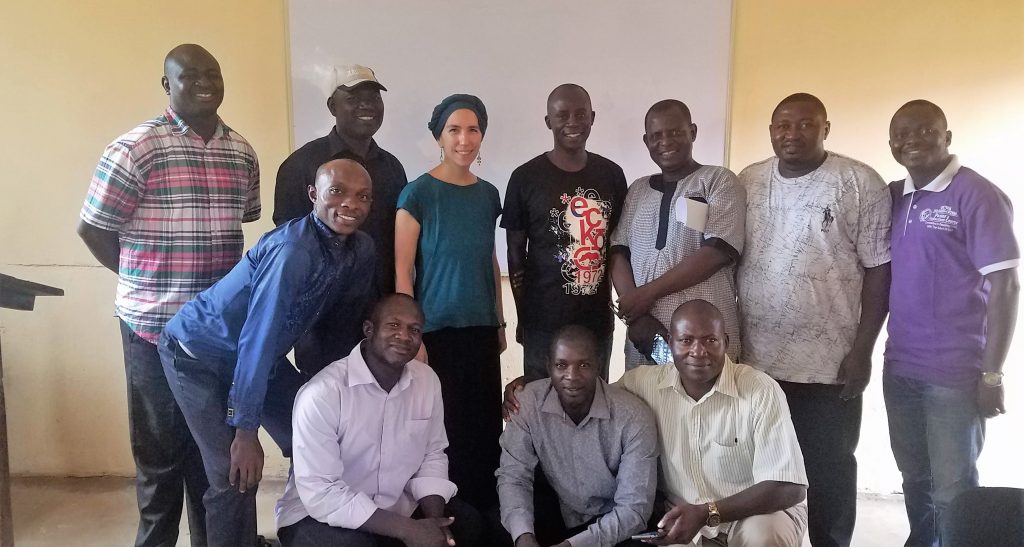The Exhausted Pastor
Michael was a pastor of a large congregation, who had seen God work in many ways. One day, another pastor, James, whom he’d known for several years came to visit. He heard the stories of all God had been doing and was very impressed, praising God for the miracles and for protecting the congregation when facing opposition.
While Pastor James was there, he had a chance to see more of Pastor Michael’s ministry. Because Pastor Michael was very wise, everyone brought their problems and disputes to him. With other responsibilities like teaching Scripture, he worked from morning until evening. His guest thought he worked too hard. Pastor James asked him, “What is this thing that you are doing for the people? Why are you sitting alone and all the people are standing by you from morning until evening?” Pastor Michael replied that this was his calling. “Because the people come to me to seek God. When they have an issue, it comes to me, and I judge between a man and his neighbor, and I make known God’s rule and his instructions.”
Pastor James still thought it was too much. He said to him, “The thing that you are doing is not good. Surely you will wear out, both you and this people who are with you, because the thing is too difficult for you. You are not able to do it alone.” He strongly recommended that he ask elders of the church to take more responsibility, to help solve people’s problems. They could bring the most difficult ones to Pastor Michael. Pastor James told him, “Lighten it for yourself, and they will bear it with you. If you will do this thing and God will command you, then you will be able to endure, and also each of the people will go to his home in peace.”
Pastor Michael highly respected his friend, but wasn’t sure how the elders and the congregation would respond. Perhaps they would think he was too weak, depending on others instead of relying on God’s strength. After all, he’d been a good leader up to that point; why should he change his ministry? But he was tired of all the work he had to do, and decided to bring the matter to the elders. He told them of his need for more rest, asking them to take more responsibility, to put more time into helping the people.
Does this story sound familiar? Perhaps you recognize the account in the Bible of Moses and his father-in-law, Jethro; the words of “James” are taken directly from the Bible. The rest of the story leads to a positive outcome: Moses delegates tasks as appropriate and new leaders step into roles of responsibility.
For some, the first part of the story might sound familiar in the modern context, as pastors, missionaries, and others in ministry face an overload of responsibilities and expectations. Many are also lacking in a support system—people in their lives who offer encouragement and accountability. This tendency is particularly true in isolated situations—where there are few fellow “workers,” and in cultural contexts where the leader is placed in an unhealthy position of being “above” others, and therefore unwilling to reveal any form of weakness.
The Leader’s Influence
Every time I teach in Nigeria, I notice this trend. The role of the pastor is to offer solutions to all presented problems and to respond to crises 24/7, in addition to preparing sermons and other typical duties. His words are held in high regard, his advice usually followed. There is power in that role, which is easily misused. While the majority are in ministry to serve God, too many fall into patterns of self-advancement, too many rely on their own knowledge and strength, and too many exploit their congregations. 
Most of my students stated that their motivation to be in my psychology class was to more effectively help people in the church; they were ready to learn and had a heart to support others. But their expectations were not the same as mine. I was not going to supply them with all the answers to take home with them; that would place the responsibility on pastors to solve all presented problems. Changes would be based on extrinsic motivation instead of integrating understanding and investment.
I wanted them to learn the concepts and the biblically-based foundations for application so they could model, adapt, and share what was relevant in their context. Rather than just reading Piaget’s theory of development, we discussed how children’s lives are shaped in the home and community, what issues they had faced in their own history and while raising their children, and how research and theology contribute to views on parenting. A significant part of the learning was self-reflection, looking at how the material was relevant in their own lives and their influence of others, both through giving instruction and setting an example. Modeling wasn’t about being a perfect example, it was about being real: showing both successes and struggles.
Worldly Leadership Turned Upside-Down
None of us love to expose our weaknesses, especially when in positions of leadership where we know we are being critiqued. Humility is the antithesis of worldly politics, where it is all about proving one’s strength, demanding respect, and elevating oneself above rivals. Churches often fall into patterns mirroring secular power structures, accompanied by top-down models of authority. But that is not the model that Jesus taught or exemplified. He flipped everything upside-down: “the last shall be first and the first shall be last.”
The next two blogs will unpack what good leadership looks like from this upside-down perspective. The humble leader must first learn to identify, even embrace, his or her limitations rather than depending on personal strength. Secondly, the humble leader must set an example based on the humility displayed by Jesus.
Take a minute to look at your life today. Where do you see humility or lack thereof? Think of the people under your influence. Have you ever been vulnerable enough to exemplify dependence on God instead of self?



Well said, Emily!